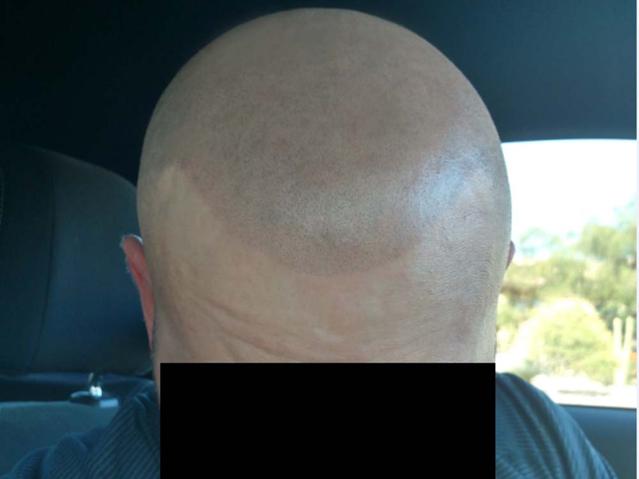Apple vinegar for hair has taken the hair loss community by storm. Many social media influencers swear by its transformative powers. Beauty forums overflow with success stories and detailed recipes. The acidic solution promises thicker, fuller hair naturally.
The Science Behind Apple Vinegar for Hair Growth Claims
ACV contains acetic acid and beneficial enzymes. These compounds help balance scalp pH levels. A healthy scalp environment supports hair follicle function. The acidic nature removes product buildup and dead skin cells.
Raw apple cider vinegar includes the “mother” culture. This cloudy substance contains probiotics and nutrients. Supporters claim these elements nourish hair roots directly. However, scientific evidence remains limited for hair growth benefits.
The basic recipe combines one part vinegar with three parts water. Users apply the mixture after shampooing their hair. Some add essential oils like rosemary or peppermint. Others include honey or coconut oil for moisture.
Weekly treatments represent the most common approach. Daily applications can damage hair cuticles over time. Rinse timing varies from immediate to five-minute treatments. Most people follow with cool water to seal hair shafts.
Benefits of Apple Vinegar for Hair Thinning
Proponents report improved hair texture and shine. Reduced scalp itching and dandruff occur frequently. Some users notice decreased hair breakage rates. Claims of new hair growth appear in testimonials regularly.
The clarifying effect removes styling product residue. Clean follicles theoretically function more efficiently. Improved blood circulation from scalp massage during application may help. These factors could create better conditions for existing hair.
The Reality of ACV Hair Treatments
Proponents of apple vinegar for hair growth make tall claims. But the reality is it cannot reverse genetic hair loss. Male pattern baldness stems from DHT hormone sensitivity. Female pattern hair loss involves complex hormonal factors. No topical rinse can overcome these underlying causes.
ACV may improve the appearance of existing hair. Shinier strands create an illusion of thickness. Reduced breakage preserves current hair length. However, new follicle growth remains scientifically unproven.
Potential Side Effects and Risks
Undiluted apple cider vinegar burns scalp skin severely. Even diluted solutions irritate sensitive individuals. Overuse leads to dryness and brittle hair strands. Color-treated hair may fade or change unexpectedly.
The acidic nature can worsen certain scalp conditions. Eczema and psoriasis may flare with ACV use. Chemical burns require immediate medical attention. Always perform patch tests before full application.
Supporters claim visible improvements within weeks. Realistic timelines extend to several months of consistent use. Individual responses vary significantly between users. Severe hair loss shows minimal improvement with any topical treatment.
Apple cider vinegar works best as a clarifying treatment. Hair health improvements may occur gradually. Density increases may or may not happen. There’s no clinical proof to validate this. Genetic hair loss requires more intensive interventions. That means the apple cider vinegar for hair theory might not work here.
Scalp Micropigmentation: More Reliable Than ACV
While apple vinegar for hair offers temporary cosmetic benefits, scalp micropigmentation delivers lasting transformation. This advanced procedure creates an immediate hair density appearance without ongoing maintenance routines.
SMP works for everyone regardless of hair type or loss severity. This includes the different causes of hair loss. Besides, genetic factors don’t limit treatment effectiveness like topical solutions. The results remain permanent without daily applications or monthly treatments.
Unlike rinses that may improve existing hair, SMP creates density where none exists.
Weather conditions never impact SMP results. Swimming, sweating, and styling products cause no damage, though you may have to be careful in the initial days of treatment. The procedure eliminates dependence on temporary cosmetic solutions forever.
However, the growing popularity of scalp micropigmentation attracts unqualified practitioners. Many tattoo artists claim SMP expertise without proper training. Regular tattoo equipment produces unnatural results on scalps.
Verify specific SMP certification and specialized training credentials. Review extensive portfolios showing realistic hair simulation work. Ask about pigment types designed specifically for scalp applications. Choose artists who focus exclusively on scalp micropigmentation rather than general tattooing.
Your permanent hair solution deserves expert hands. Don’t trust your scalp to inexperienced practitioners seeking quick profits from the SMP trend. Schedule a consultation with top Arizona SMP practitioners now. The best are available at DermiMatch Clinic in Arizona.

